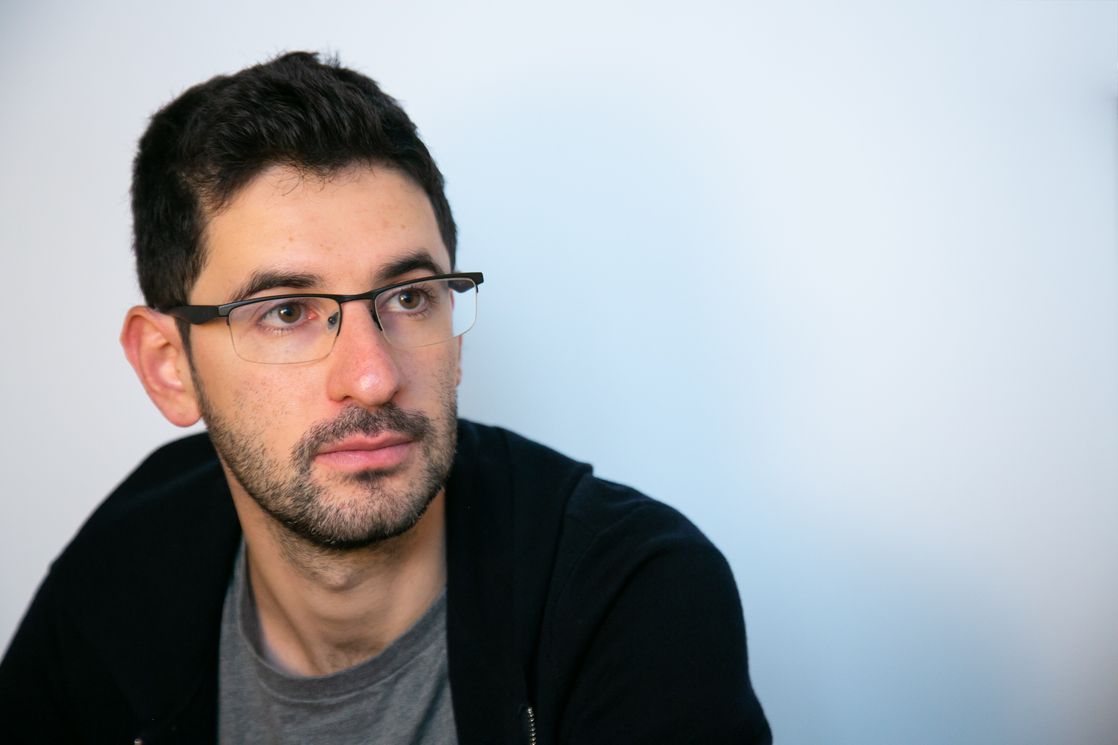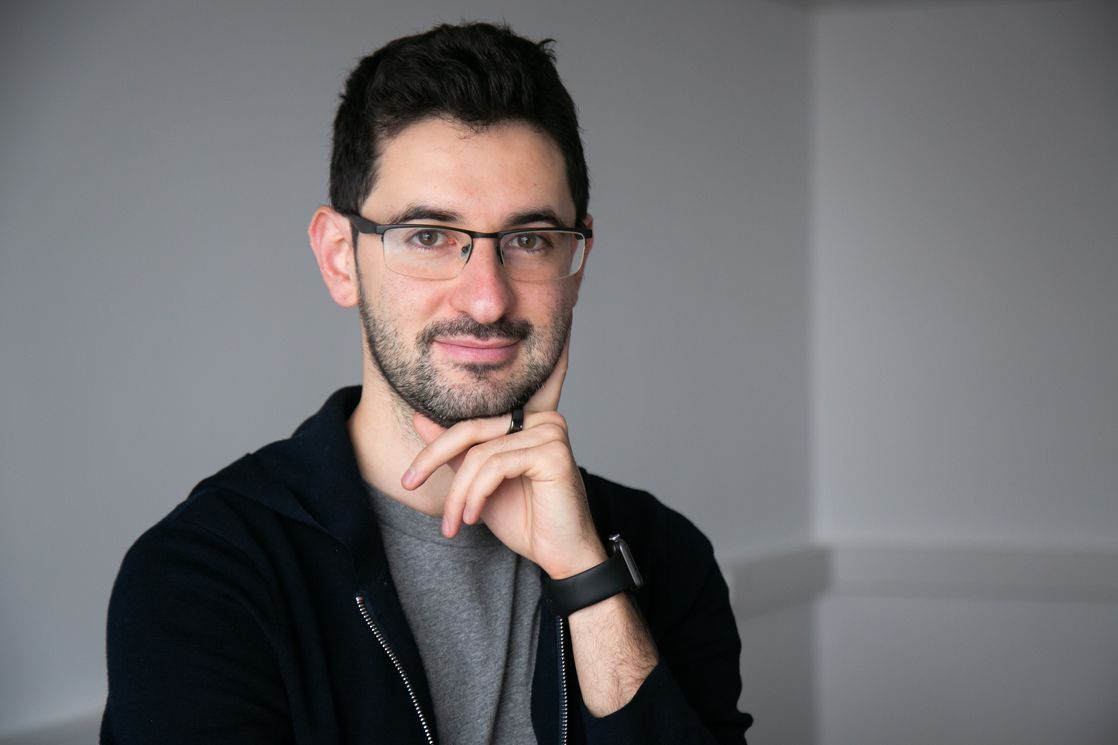“Gett inspires me by the feeling of power – this is really my sphere!”
Dan Lifshits, ICEF BSc graduate (2014), started his career at the age of 18. At 22 he became the youngest аssociate of McKinsey in Europe ever, and now he is one of the top managers in Gett – a global technology platform. Dan told us how to change the consulting sphere to technologies and about his life and work in Gett.
Was it the aim of your education to work in the international company?
A few factors led to this. I was lucky to have the opportunity to go to the Netherlands for a student exchange programme in my third year. I lived and studied there for half a year in the wonderful town of Tilburg. This experience, together with the double degree programme, gave me a better insight into the aims of my education and answered my questions about the international professional community. Only in that environment abroad could I understand what I want and what I do not want.
The second factor is my job in McKinsey in my fourth year. I observed my colleagues, including those who had obtained a master’s degree abroad, and I came to the conclusion that I have received an education of high quality. And it is enough to work in great companies in Moscow and abroad. So, I did not look forward to going abroad either for work, or for education.
What about bachelor’s degree? Did you want to try something new and go abroad for education from scratch?
Can you imagine a 16-year-old young man who lives in Novosibirsk with his parents and thinks about studying abroad? It is difficult both from a financial and psychological point of view. As for Moscow, it is in Russia, although it is as far away as other countries. The ICEF programme is the same as in the University of London. Common sense helped me to connect the dots and make a choice. Although two of my classmates went to the USA after school, I was not that brave.
What did your parents think about your education?
I want to thank them. My mother is a doctor; my father is an engineer. Neither of them has any relation to Economics. But they never said: go only here or there. They gave me freedom to do what I want.
I have been always interested in maths and I was good at it. But one day I understood how abstract and far from the reality this subject is. At the same time I was interested in business and enterprise. My father, as a business co-owner, subscribed to a magazine, “Expert”, which I read with great pleasure.
It turned out that business and Economics in general are in fact applied maths! And if you are good at it, Economics will also be easy for you. After a few competitions in maths I was sure that I would enter the Faculty of Mechanics and Mathematics. But then I took part in some of All-Russian Olympiads in Economics and then came dialectics.
What benefit did you get from Olympiads apart from diplomas?
I came to realize what are “good and strong” universities. Apart from MSU there was HSE. I hung out with people from different universities, listened to their opinions about matriculation and it expanded my horizons. All-Russian Olympiads provide a real opportunity to choose a university. And that is really a benefit for a school student, a big motivation to take part in them.
I was surrounded by guys who learned to take decisions, to understand the features of a good education and the level of the academic environment. Moreover, Olympiads provide strong links with teachers. On this stage I got acquainted with scientists from HSE, realized who they are and what I liked about them. I understood what atmosphere they have in the university and took my decision.

What did you want to be in the university? What skills did you manage to get for that?
After my first year in the university I worked as a trainee in a bank. I got to know how things that we learned were applied in business. As a second-year student I worked in one of the leading Russian consulting company, Strategy Partners Group. I should say I had doubts there: some things that I did in this company differed from what I did at university.
Even if your job is not in finance or banking, your background after ICEF includes analytical tools, research skills, critical thinking and the ability to think more widely and to see more options.
To be honest, I do not apply quantitative models in my work. But what I find very useful are the skills of continuous growth, studying and most important – the motivation to learn more and more.
How did you manage to become one of the youngest McKinsey associate in Europe?
It was a usual Internship programme which the company offers to ICEF’s final-year students. As a rule, after half a year of part time training the students are converted into full-time employees. I had the same experience. The system of promotion is very precise there. Depending on your success in projects, opinions and wishes of your professional tutors you can change your position every year. The reason for my success is the fact that I could skip some grades and did the same things a little more quickly and better than others. It is also evident that my previous experience in Strategy Partners Group helped me - I worked there from my second to fourth year.
What was your job title when you started working in Gett?
Head of Supply in Russia. My duties included all the performing part in the taxi sphere. I was responsible for creating the system of interaction between drivers and taxi companies, for the drivers’ advertising and training. I was elaborating a strategy to reach maximum prolongation of the contracts with drivers and planned to start working in new cities.

Where do you work? I mean, in terms of location?
Some time here, some time there. Because when you spend too much time in one place, you lose the understanding of the market in a whole. Most of the time I spend in Russia and Israel. I sometimes go to Great Britain. I used to fly to the USA quite often, but now this part of business has been sold. Gett is an Israeli company, its head office has been there since 2010.
What is unusual about this company? What can you tell about its working process?
Gett offers good career prospects. We engage new workers and they grow very quickly, starting from technical support and managers and becoming department managers.
What I like in Gett is its clear corporate culture. It makes it possible to understand quickly whether you can work there or not. If everything is ok, you get into a team of like-minded people, who are on the same wavelength as you. And it is wonderful!
The company culture in McKinsey is also very strong, but they are customer focused. As for Gett, due to the care for clients they develop the employees and the whole market.
I had an interesting insight about the values. Both in Gett and McKinsey they are written on the walls of the office. When you come into the office you remember what they want and what they do here. It is very good when the values are verbalized.
What is the difference between McKinsey and Gett for you?
In McKinsey you work in a huge corporation, your role in its success is not that remarkable. If your results are not good, it would hardly do any harm to the company. In a smaller company you can see the effect of your actions. For example, in a startup the culture is based on motivation and responsibility of every member of the working process. There you can see your personal input.
In Gett I am inspired by the feeling of self-significance, business is truly my sphere. Here I feel more drive and motivation. It is hard for me to switch off from work, I think about it almost all the time. It worries me a bit, but also inspires me a lot.
This year on Keystone Career Forum Gett recruited HSE students. It was one of the most attended stands. Who is the company looking for and what does it promise?
We invite product managers and analysts. That is relevant for ICEF students. As a rule, we have all the information about our part-time and full-time vacancies on our web site. Some people who work in our company got employed when they were third year students, and they have grown in their career since then. We also have students from business informatics. Gett likes HSE students, as we have similar values.
On the stage of becoming department directors people often get an MBA. Is it important for you and does it help to manage better?
For me the benefit of an MBA in the career is not obvious. But I see some interesting factors which this education can give. It is important to live abroad and get experience which expands your horizons. New occupational contacts and connections especially in the business environment of such a high quality will also matter in your career.
However, as I see it, HSE and ICEF are well known abroad and you do not need to get one more degree. It is good and interesting to study MBA, but if I want to get a deeper understanding of the topic, I would do it more quickly than in two years. Now we have lots of opportunities and open resources for that.